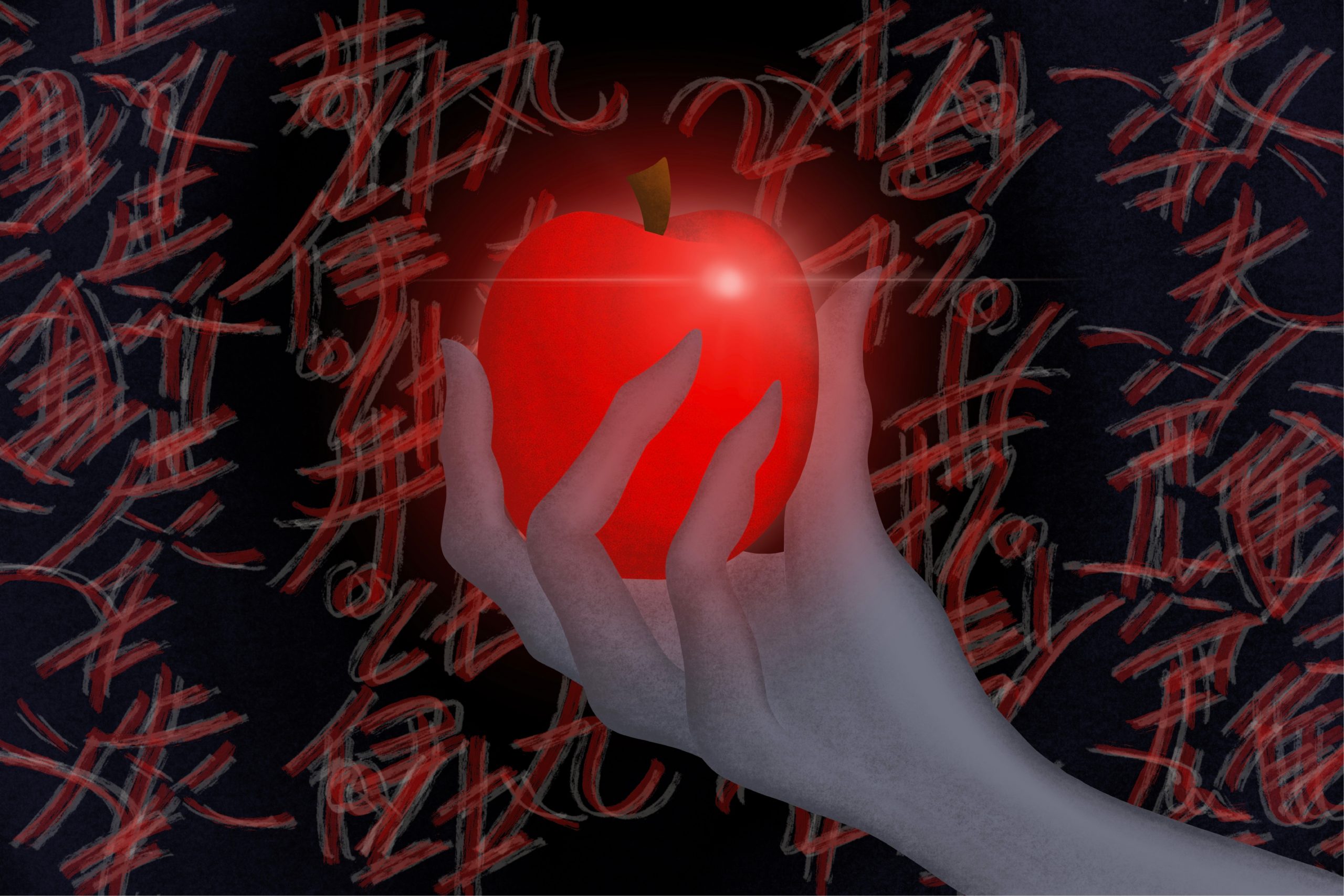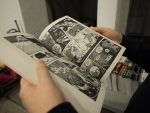This year marks the 15th anniversary of Tsugumi Ohba’s famous anime “Death Note,” widely considered one of the best anime of all time. The show provides a fascinating combination of themes such as moral ideologies, manipulation and the abuse of power. Spanning only 37 episodes, the show moves at a very quick pace, ensuring that the viewer will want to move from one episode to the next as soon as possible to find out how the plot progresses.
The show follows Light Yagami, an incredibly gifted high school student who one day discovers a mysterious notebook labeled as a “Death Note,” which supposedly has the ability to kill anyone whose name is written in it. Although he initially dismisses the notebook as a prank, Light’s curiosity eventually leads him to test out the notebook on a local criminal, which to his surprise, results in that person’s death. Despite his initial qualms about taking human life in such a manner, Light quickly begins to embrace the notebook’s powers and vows to eliminate every criminal from the planet and become the “God of the New World.” Light’s actions gain worldwide attention as he wipes out criminals on a massive scale, and citizens begin to idolize ”Kira,” their name for the entity responsible.
At the same time, the international police force also launches an investigation behind these murders, spearheaded by L, the world’s smartest detective. Using a public media stunt, L manages to trick Light into revealing that he is in Japan, and from there a battle ensues in which both L and Light attempt to discover each other’s respective identities while protecting their own. All the while, both L and Light proclaim themselves to be the true embodiments of justice.
“Death Note” features a unique dynamic in which Light essentially functions as the show’s main antagonist as well. Although Light originally intends to follow in his father’s footsteps and join the police force, he spends the entire series killing criminals and protecting his identity from the police. In order to cover his tracks, Light quickly develops a ruthless, manipulative and egotistical nature, backed by his supreme intellect and quick wit. Although he maintains an outward facade of friendliness, he demonstrates a willingness to kill anyone who could possibly interfere with his goals or reveal his identity to the police.
Even though one could argue that Light’s original mission stems from a genuine desire to improve the world, he becomes so consumed with protecting his secrets that his actions transgress conventional codes of morality. For example, a character named Misa Amane, a devout believer in Kira, pledges her allegiance to him and subsequently develops romantic feelings for Light himself. Light takes full advantage of those feelings and has her assist him in his incredibly dangerous battle to defeat L and the police force.
Light reasons that anyone who either tries to capture him or put his mission in jeopardy deserves to die, and as a result, his agenda becomes increasingly self-centered. In several instances, Light will give an evil smile and deliberately confess that he is Kira right before he successfully kills an important victim, which reveals the extent of his psychological transformation as a result of the notebook.
At one point in the series, Light forfeits ownership of the notebook, which causes him to lose all memories of the crimes he committed with it. The episodes in which Light works alongside L to find the new owner of the notebook give the viewers a more in-depth glimpse into what Light could have been without the notebook. He demonstrates much more reluctance to put other people’s lives at risk, even if doing so would advance the investigation, in stark contrast to his willingness to sacrifice members of his own family to achieve his goals, which he demonstrates with the notebook.
This psychological divide leaves a strong impression on the viewer, regardless of whether they side with Light or not. Even if his intentions are noble, the notebook’s undeniable impact on Light’s psyche raises profound moral questions for the viewer to contemplate.
Despite the show’s deep emphasis on Light’s personal development, the supporting cast in “Death Note” likewise represents important aspects of human nature as well. For example, L serves as a perfect adversary to Light. Although he himself admits to having similar character flaws as Kira, L has dedicated his life toward his own notion of justice. Although he enlists the help of the Japanese police, he remains one of the only characters in the show who can keep pace with Light’s cunning mind. While the writers leave his backstory a mystery for much of the show, his dogged determination to solve the most important and enigmatic case in human history causes the audience to support him. His quirky traits, such as his sweet tooth and infamous sitting position, have made him one of the most iconic characters across all anime.
Light’s father, Soichiro Yagami, also plays a major role in the series and symbolizes the moral divide between Light and the rest of the world. When Light himself falls under suspicion, Soichiro tragically remains convinced that his son could never become a mass murderer, and Light’s constant manipulation of his father throughout the series evokes a strong reaction from the audience. While viewers tend to feel anger toward Light and sympathy for Soichiro, they also realize the tragedy that underlies the entire series, as the notebook and Light’s determination ultimately create an irreconcilable moral schism that the cast of characters must grapple with throughout the series.
Overall, “Death Note” reminds viewers about the grave implications that come with murder. Even though the Death Note trivializes this action by allowing Light to simply kill people at the stroke of a pen, the overwhelming influence of his actions permanently changes the course of his own life as well as that of the world itself. Viewers who enjoy thrilling action, deep storylines and deceit will have a fantastic time watching “Death Note.”
















